The Government has announced the requirements for universities to prepare plans for students to return to campus safely in January, flexibilities for 2021 level 2/3 exams have been confirmed, there’s a new report about higher technical education, and the attainment and continuation gap for estranged students is of concern.
Parliamentary News
Local Rebels: The Government experienced a rocky ride as Parliament passed the Covid tier legislation on Tuesday. The Conservative rebels that voted against the Government can be seen here. Notably several local MPs voted against or abstained from the vote. Chope and Drax voted against, Syms said he would vote against (but was unable to vote as he acted as a teller for the no votes), Tobias Ellwood abstained.
WMS – Skills Bootcamps: The DfE published a Written Ministerial Statement from Gavin Williamson (Education SoS) giving an update on the Lifetime Skills Guarantee. It announced the extension of the skills boot camps including to the ‘Heart of the South West’ covering digital skills (software development, digital marketing, and data analytics) and technical skills training such as welding, engineering, and construction. A further £43m will be invested through the National Skills Fund to extend Skills Bootcamps further across the country in 2021.
January Restart
The DfE released the January restart guidance explaining the rules and priorities universities should adhere to for the safe return of students. (Press release here)
- The return of students should be staggered over 5 weeks – this is to minimise transmission risks from the mass movement of students
- There is a priority order for students to return with medical, practical and placement students returning first (4 to 22 January) to access their essential face to face tuition. Those with external (e.g. professional body) exams that cannot be moved are also permitted to return.
- Other students will receive online tuition and return to campus in a staggered manner between 25 January and 5 February. The Government set out a priority order for those in the second phase of return e.g. postgraduates first, new starters last.
- All students should be offered (the asymptomatic) testing on return to university before tuition recommences, social contact to be curtailed whilst awaiting the results of both tests (3 days apart)
- Students who returned home over the winter break should not be encouraged to return to their term-time accommodation until their face-to-face teaching is scheduled to resume
- Students who remained in their term time accommodation over the winter break or those for whom an early return is essential (e.g. those without study space or connectivity within their domicile, international students, students without other suitable accommodation, those who need to return sooner for health reasons). Students who return early due to these reasons and commuter students are expected to be able to access campus facilities such as the library during the period.
- International students returning from outside of a travel corridor must self-isolate for 14 days, although they can pay for a private test which if negative will reduce the isolation to 5 days.
- Students who spend the winter break within tier 3 should take a test before they travel, if this is available locally.
In her letter to Vice-Chancellors Donelan stated:
- We do not underestimate the work that will need to be done to accommodate this plan including moving exams or putting them online and creating more online materials and lessons.
- This plan is the best way to ensure all students can return and blended learning can resume whilst reducing the risks of mass movement and also ensuring all students can be tested.
- We continue to support the blended learning model that universities have been using and still consider you, in collaboration with local public health teams, to be best-placed in determining the proportion of online/in-person teaching working that works for your setting. However, where it is deemed safe to do so, we would encourage as much face-to-face learning as possible, recognising the benefits this brings to student experience.
Financial Hardship: The Minister also announced there would be £20 million allocated on a one-off basis to support those that need it most, particularly disadvantaged students. They will work with OfS to produce the detail on this.
One shot: Earlier in the week the Government stated that students would be counted within the ‘home’ household numbers for calculating visitor numbers during the Christmas window. It also confirmed that students are only permitted one visit home between 3 December 2020 and 8 February 2021.
Wonkhe have a blog delving into the detail of the Government’s statutory instrument which covers the student related aspects here.
No plans to cancel A-levels in 2021 in England
On Thursday Education Secretary Gavin Williamson announced extra measures to support students during the 2021 exams:
Students sitting exams and other assessments next year will benefit from a package of exceptional measures to make them as fair as possible and manage the disruption caused by Covid-19
In recognition of the challenges faced by students this year, grades will be more generous, students will be given advance notice of some topic areas, and steps will be taken to ensure every student receives a grade, even if they miss a paper due to self-isolation or illness.
- exam aids – like formula sheets – provided in some exams giving students more confidence and reducing the amount of information they need to memorise;
- additional exams to give students a second chance to sit a paper if the main exams or assessments are missed due to illness or self-isolation; and
- a new expert group to look at differential learning and monitor the variation in the impact of the pandemic on students across the country.
Students taking vocational and technical qualifications will also see adaptations to ensure parity between general and vocational qualifications
Where a student has a legitimate reason to miss all their papers, then a validated teacher informed assessment can be used, only once all chances to sit an exam have passed
Test and exam results will not be included in performance tables this year, and instead will be replaced by attendance information, and student destinations and the subjects taken at key stage 4 and 5
And on remote education within schools and colleges there are updated expectations:
- Primary schools are expected to provide a minimum of three hours a day on average; secondary schools expected to provide at least four hours’ worth
- Similar expectations will apply for colleges and other further education providers which take into account the sector’s role in delivering both academic and technical provision
A Government news story tells us that the Social Mobility Commission is contributing to DfE planning process for the 2021 exams. They have recommended the Government:
- Suspend school performance tables for 2021, as they fail to take account of the disproportionate learning loss experienced by students in areas of deprivation.
- Work with schools and colleges to develop a clear and consistent system for collecting centre assessed grades that can be used as a contingency measure if individual students are unable to take exams.
- Offer students the opportunity to take exams in Autumn 2021, without this being considered a ‘resit’. The results would need to be made available in time for UCAS applications for 2022 entry.
- Support schools with extra resources, such as additional staff and venues, so that they can provide Covid-secure examination environments.
- Mitigations in content and structure of exams benefit all candidates, and so do not address gaps between those who have struggled with remote learning due to home circumstance and those who have not. As such, while some adjustment (like the reduction in content of English Literature) may be practically necessary and useful, it should not be regarded as a solution.
- Generosity in grading for 2021 should aim for a midpoint between 2019 and 2020, but following a normal mathematical distribution, rather than replicating the anomalies of 2020.
- Arrangements for students isolating at the time of exams have to take into account the vast difference in personal and socio-economic circumstances. Home invigilation should be avoided.
For the students progressing to university:
- Arrangements providing grants and opportunities for gap years for those with fewer familial resources should be retained.
- At the moment, some courses prejudice those who have done an extra year, and some institutions struggle to accommodate retakes of years because of funding reductions for older students – this could easily be addressed.
Their recommendations aim to ensure equity in the 2021 exam system: Most recognise that there is a widening achievement gap in the nation’s schools and that the impact of coronavirus has disproportionally hit pupils in areas of deprivation.
The Social Mobility Commission statement included:
- Schools must not ambushed at the last minute on this – they need time to adjust their teaching and their focus in ways that allow them to provide an effective education for the most vulnerable…We must also not fall into the trap of thinking that solutions that benefit all students will address the widening achievement gap. In a competitive exam system like ours, the key worry is that disadvantaged students will be outperformed by their peers whose experience of lockdown has been far smoother and more productive.
- The key question the commission has considered in setting out our advice is ‘What constitutes a good outcome for the students who have been most disadvantaged this year? Are they better with weaker grades in more subjects, or better grades in the subjects they need?’ We firmly believe that if we can free up schools by taking away some of the pressure of performance tables that we think are unlikely to tell us anything useful about the system this year, then we can allow deprived students who have often suffered the most to be given tailored solutions.
The Government’s invitation to the Social Mobility Commission sits a little awkwardly with the outcomes of Ofqual’s analysis of the 2020 GCSE and A level awards (published late last week) which and concluded that there was “no evidence” that the system systematically disadvantaged poorer pupils or those with protected characteristics. However, the report suggests that there was “some evidence that some 6,300 GCSE entries by low prior attainers with unknown socioeconomic status (most of whom are at independent schools) may have received disproportionately overestimated grades.” The same effect was not seen for A levels.
Ofqual also pointed out that although poorer pupils saw a bigger drop in grades B to E as a result of standardisation, the proportion achieving A* and A grades actually fell by less than it did for pupils from better-off backgrounds.
The new report looked at the centre-assessment grades, calculated grades and final grades issued to pupils. It found that had calculated grades been issued, the results would have been more closely in line with the established relationships between student characteristics and outcomes seen in previous results.
Admissions
A Wonkhe blog explains Ireland’s university admissions system: The CAO [Central Applications Office] is best understood as an application clearing house, rather than a strict comparator to UCAS. The system in Ireland is what the UK is now terming PQO: post qualification offers.
- …With up to 20 choices to play with, however, students can choose to be very ambitious with some of their choices
- Students applying to university will have a sense of what they may achieve in the Leaving Certificate, and thus can apply to courses that cover this range, though predicted grades don’t exist in the Irish system…there’s very little penalty to being speculative.
- …points mean places. Rather than being entry requirements, they specify the lowest points score that gained a place in the previous cycle. When looking at options, students thus need to be aware that this grade can vary wildly from year to year, as the process is based on supply and demand.
It’s not quite that simple… The nature of the supply and demand system means that the order of preference becomes all important. In Round One, students will be given a place on the course that ranks highest on their list of preferences, with all places below automatically denied. Then, as the rounds progress throughout August and early September, students can be made offers from their higher-ranked preferences, if they open up based on the decisions of other students.
There’s a blog on the Australian system here.
Parliamentary Questions: Universities expected to be flexible in admissions at high ranking institutions so students don’t miss out on places due to Covid related schooling disruption
HE Student Experience
HEPI published the policy note – Students’ views on the impact of Coronavirus on their higher education experience in 2020/21. Findings show students’ increasing satisfaction with online learning and positivity with how institutions ensure the Covid risks are minimised. The survey also shows that some students are spending the majority of their time in their accommodation the majority of students have experienced a decline in their mental wellbeing since the outset of the pandemic.
- 59% UG students satisfied with online learning (was 42% June 2020, 49% March 2020)
- 58% of students report poorer mental health than at the beginning of the pandemic (14% better mental health, 28% report no change to their mental health state)
- 42% of students are satisfied with the university’s mental health services, 16% are unsatisfied
- 50% are satisfied with the HEI’s other (non-mental health) support services, e.g. careers support.
- 44% satisfied with student union support
- 56% happy with how the institution has handled outbreaks of the coronavirus
- 79% say their HEI experience feels safe (see chart below)
- 33% of students spend all or most of their time in their accommodation. (Note 51% of students are receiving some face to face teaching nationally.)
- 60% understand the (Government’s) end of term & Christmas travel window guidance
- 54% have concerns about the return to university in January 2021
There are colourful charts in the full policy note.
No detriment: Nationally students have been calling for no detriment policies to apply in 20/2021. Wonkhe have a blog. Snippet:
- I can see a growing number of students signing petitions and commenting on SU forums that they are amazed that “no detriment” policies have generally not survived the summer, and are angry that poor performance this term might end up framed in institutional terms as something that is individual – and somehow their fault.
- When we say we are maintaining “quality and standards” we may be hiding debates – about whether we mean the standard of that which universities might reasonably provide during a massively disruptive global pandemic, or the standard of attainment we might reasonably expect students to achieve during a massively disruptive global pandemic.
- …What’s very clear is that the comments from students on the forums and petitions should be seen as coalmine canaries – cries for help and exhortations for some empathy. Complex procedures to address individual failure caused by specific circumstances increasingly look tone deaf to a cohort whose only real shared experience is how miserable it’s all been.
- Pure “No Detriment” policies may well not fit the bill if there’s not enough pre-pandemic academic performance evidence to establish a floor over. But we’re going to need something…
There’s the usual parliamentary question and response on HE student mental health. And the Universities Minister confirms the Government anticipates using mass testing as students return to university in January.
Research
HEPI have a new blog written by a PhD student who experienced burn out. To support PhD students well-being she recommends:
- Fostering cohesive online cohorts
- Strong dedicated representation (Students Union) systems to raise and address issues
- Hands on training (not virtual) to improve access to and experience of a range of career pathways beyond academia
The blog concludes: PhD funders need to recognise that, with the current financial provision, increasing mental health support services won’t stop the pressures that undermine researcher wellbeing.
£61m boost for Europe’s largest ‘flying lab’
- Facility for Airborne Atmospheric Measurements (FAAM) have been awarded £61m by the NERC
- Spread over 10 years, the funding will help to uncover causes behind rising methane in the Arctic, understanding the effect of biomass burning and monitor volcanic gases
- The Airborne Laboratory will provide ‘world-class’ measurements for the benefit of the UK government, businesses and research community
EoI: Manufacturing Made Smarter innovation hub
- The Digital Supply Chain Innovation Hub should focus on manufacturing supply chains, looking to digitally optimise and integrate these supply chains from end to end. UK registered businesses and research organisations can apply for up to £10m from ISCF to set up and run a digital supply chain innovation hub
UK-German collaborative research projects announced – the AHRC and German Research Foundation have announced 18 collaborative research projects, bringing together arts and humanities researchers to conduct outstanding research projects which span a wide range of subjects. UK budget of £4.8m matched by €5m for research teams in Germany. Projects will start in early 2021 and are expected to run for at least three years until 2023
UKRI Global coronavirus research and innovation network pre-announcement
- Individuals of lecturer level (or equivalent) can apply to establish a single international network for research into coronavirus. The network may run for up to 4 years
- The total fund and maximum grant are £500,000. Applicationsopen on 4 January 2021, and close on 23 February 2021.
Improving health in low and middle income countries pre-announcement – no size or funding limited, proposals that combine expertise from more than one sector to meet a global health challenge particularly welcome. Applications open on 1 February 2021, and close on 8 April 2021.
UKRI formally recognises the contributions of reviewers
- UKRI will be the first funder to formally credit contributions of reviewers through the Orcid system
- Reviewers will be issues with a ‘review credit’, which will be publicly displayed in their Orcid profiles
Concerns over future of international development research. In the Spending Review, Sunak said they will reduce the aid budget to 0.5% of GNI from 0.7%. Concerns have been raised that this could represent a missing £4bn a year
Medical Research Council calls for more collaboration to get the most out of key research opportunities. The call comes following the MRC’s independent review
Changing the UK’s intellectual property regime to attract investment in life sciences.
Research Professional writes that just one more formal three-way talk among the European Union institutions should be enough to reach an agreement on the remaining parts of the legislation for Horizon Europe
Withdrawals
The Student Loans Company published in-year statistics on the number of notifications of student withdrawals.
- The Student Loans Company (SLC) does not routinely publish data on the withdrawal notifications it receives from Higher Education Providers (HEPs). However, during Academic Year (AY) 2020/21 to date, there has been significant public interest in this data in order to contribute towards an understanding of how the COVID-19 pandemic may be impacting students. Therefore, SLC has taken the decision to publish this on an ad hoc basis as experimental statistics.
- Based on this data, SLC has not seen any increase in student withdrawal notifications for the purpose of student finance in this academic year, compared to the previous two years. In this respect, withdrawal notifications are currently slightly lower than the previous two years for UK & EU students funded by Student Finance England, Student Finance Wales and Student Finance Northern Ireland. Some of this reduction may be explained by the irregular start to the current academic year.
Access & Participation
Estranged students: The OfS released a report at the end of last week highlighting that estranged students are less likely to be awarded a first or 2:1 and more likely to drop out during their first year of studies. Around 3,000 students are classed as estranged when they enter HE each year.
According to the data:
- The continuation rate of entrants in 2017-18 who were estranged from their parents was 8.2% lower than students who were not estranged – though this gap has reduced from 11.2% in 2014-15.
- The attainment rate (achieving a first or 2:1) of estranged students in 2018-19 was 13% lower than students who were not estranged.
- Care experienced students are more likely to drop out and less likely to achieve a first or a 2:1. In 2017-18 the continuation rate of care experienced students was 5.6% lower than that for students who have not been in care. In 2018-19 the attainment rate (achieving a first or 2:1) of care experienced students was 12.1% lower than the attainment rate of students who have not been in care.
- Students starting in 2017-18 who were eligible for free school meals were more likely to drop out than those who were not – data showing a 5.4% gap. For students graduating in 2018-19, the rate achieving a first or 2:1 was 13% lower for students who were eligible for free school meals compared with those who were not.
There is an OfS blog which addresses the gaps.
Chris Millward, Director for Fair Access and Participation at the OfS, said: We expect universities and colleges to identify and tackle the barriers to success for the student groups identified in this data, so it will help them to develop their access and participation plans during the coming year.
Care Leavers: Wonkhe: The National Network for the Education of Care Leavers, along with a number of other campaigning and support groups with an interest in care leavers, has written a “message to all vice chancellors and principals”. The message sets out recommendations on key ways to support the academic, social, and mental health needs of care leavers remaining on campus over Christmas.
White Disadvantaged Pupils: The Education Committee continued with their inquiry into left behind white disadvantaged pupils. Dods have provided a summary here. Place and the impact of the family were key facets of the meeting. Excerpts:
- was important to look at educational underachievement not through the lenses of ethnicity but through the characteristics of the place.
- …the pandemic did not bring forward new ways of deprivation, but it exacerbated existing ones…On the issue of families, he spoke about a report that came out two weeks ago which found that children had regressed during the time of the pandemic. In his view, this was not solely because of deprivation levels, but also depended on the support structures in the homes.
Level 4/5 and Technical Provision
Assessing performance: With the current Government’s favour for bite sized provision, technical and skills alternatives to the traditional degree, and favouring level 4/5 provision there is a great blog here that considers all the past versions of these. It starts out: As sometimes happens with HE policy, we’ve been here before. Several times. And also comments: In terms of level, a qualification that goes beyond that expected of 18 year olds (level 3) but stays at level 4/5, is a holy grail – which is odd because the problem is that it’s the thing that people aren’t seeking enough. At its worst, it’s the solution that people propose for other people’s children.
It quickly runs through the best and worst covering DipHE, Associate Degree, Foundation Degree, HND, HTQs, and problems with the word ‘technical’.
Gatsby Review Follow Up: The Gatsby Foundation were commissioned by the Government to review level 4 and 5 technical education in England. The review looked at the development of higher technical education in England since the 1944 Education Act, and how it compares with the experience of other countries. (The review was actually published in December 2018.) The original report concluded that England has a very small higher technical sector by international standards – the ‘missing middle’. In the 1960s and 70s, the rapid expansion in university education following the Robbins report privileged full-time degree level study, while many professions increasingly expected degree-level qualifications from new entrants. The Foundation Degree was seen as successful in filling the gap and the decline of part-time student numbers impacted higher technical enrolments. The report describes other countries that embrace a larger role for higher technical education, and agrees with the Secretary of State’s ambition for England to learn from international experience as it builds the technical education system. This week the Gatsby Foundation published Beyond the Missing Middle: Developing Higher Technical Education – a follow up report that they commissioned which explores the international success stories.
The report calls for
- …further development in the higher technical system – allowing for recognition of prior learning, drawing on workbased learning, and built from modular components.
- The framework would offer alternative routes, tailored to the needs of different students, to occupational competence. Not only would this approach be well adapted to the needs of adults who are already the prime candidates for HTE qualifications, it would also compete very effectively with most higher education degrees, which rarely offer these flexibilities.
Recognition of prior learning is often a slippery beast. The report suggests: While many countries have sought to develop special procedures for assessing and granting credit for prior learning, these procedures can be cumbersome. An alternative approach, used extensively in different countries, is to grant adults with relevant work experience direct access to the final examinations for a qualification without going through a required programme of study. This allows students themselves to prepare for the examination in a manner tailored to their existing knowledge and skills
Workbased learning is also emphasised and the author argues for apprenticeship style end point assessments to be applied.
There is lots more detail in the full document and Wonkhe have a blog. Research Professional cover the report too.
International
Dods tell us:
- Reports suggest that first-year EU students face £800 Brexit bill if not in UK before 2021.
- The Home Office said they will not qualify for EU pre-settled status if they arrive after the end of the transition period, even though they have been unable to relocate because of Covid. It potentially means tens of thousands of students will have to pay £348 in application fees for a visa with £470 a year in health charges, both new post-Brexit costs. One issue for EU students who have not started their education in the UK before the end of the transition period is that they cannot evidence their residency with rent receipts, utility bills or bank accounts.
- According to Home Office rules published on the government website, students only need to provide one document dated in the last six months in order to be granted pre-settled status, including a “passport stamp confirming entry at the UK border” or “a used travel ticket confirming you entered the UK from another country”.
- In a section entitled “evidence that covers shorter periods of time”,the Home Office states: “these documents count as evidence for one month if they have a single date on” suggesting a short trip to the UK up to and including New Year’s Eve is enough to evince free movement rights.
Parliamentary Questions: Course/professional qualifications admissibility to graduate immigration route not confirmed yet
OfS Annual Review
The OfS published their 2020 annual review. Key points:
- HEIs are urged to radically improve digital teaching and learning as they continue to negotiate the impact of the coronavirus pandemic.
- Concerns are levied as the pandemic has ‘exacerbated’ existing inequalities – especially those impacted by digital poverty. Certain groups of students are vulnerable – international students, postgraduates and students who are vulnerable by reason of disability or for other reasons
- The report on digital teaching and learning will look at how high-quality digital provision can be continued and delivered at scale; consider the impact of digital poverty; and explore how digital technology has been used to deliver remote education since the pandemic started.
- Greater demand for adults to retrain at HE level is expected during 2021. 2021 should be a year when we look more seriously at how courses could be made more attractive and responsive to mature students, and a year when more adults are encouraged to take up such opportunities
Quality (and the OfS current consultation):
- Poor-quality courses should be improved or no longer offered – the OfS consultation on this is mentioned: [it] proposes a series of measures to define, monitor and take action regarding the quality and standards of courses that do not reach minimum requirements
- Our proposals would ensure that providers that recruit students from underrepresented groups and with protected characteristics are held to the same minimum level of performance as other providers, and would see consideration given to outcomes at subject level within providers, as well as at the level of the whole provider
The OfS set out actions they plan to take during 2021:
Fair admissions and recruitment
- Following the update of Discover Uni in autumn 2020, which involved a new look and feel and improved course pages, further content and functionality is planned, including a new and improved compare and search functionality for courses, and more content for international students and mature students.
- We will continue to be vigilant in monitoring the impacts of the pandemic to take action to support fair admissions.
- We will work closely with the Department for Education, UCAS and UUK on the next phase of their work. In doing so, we will consider whether there is a case for further investigation of the issues identified in our admissions review, in light of the proposals that emerge during the coming year. In particular, we will consider the extent to which any proposed reforms consider the experiences of part-time, mature, international and postgraduate students. If there is a case to relaunch our review of admissions with a more focused set of considerations, then we will do so.
Ensuring high-quality teaching and learning
- Conclude our online teaching and learning review.
- Publish the findings of our consultation on quality.
- Consult on our future approach to the TEF.
- Conclude our review of the NSS and publish the findings.
Supporting all students to success
- Develop further regulatory and funding incentives for mature student participation.
- Continue collaborating with Uni Connect programmes to build on innovative delivery during the pandemic to support diverse pathways for students applying next year and beyond, including local progression from further education colleges.
- Work with Student Minds to mitigate the mental health effects of the pandemic.
- Relaunch the consultation on how universities and colleges should prevent and respond to incidents of harassment.
- Deepen our understanding of student populations, including the intersections between different groups, through the access and participation dataset and a new Associations Between Characteristics measure.
- Track student progress from outreach through to higher education and into employment, through the Higher Education Access Tracker and similar services.
- Develop evaluation practice and the use of evaluation findings through the OfS-funded ‘what works’ centre, Transforming Access and Student Outcomes in Higher Education.
Graduate skills and prospects in the pandemic
- Evaluate the support for local graduates through our funding, working with further education colleges and universities.
- Ensure universities and colleges are closing attainment gaps and securing equitable graduate outcomes.
- Continue to fund courses that provide graduates for industries, such as certain science, technology, engineering and maths subjects, and health and medical subjects.
Research Professional have a short article covering the OfS annual review here.
Anti-Semitism
The Guardian has an opinion piece – The government should not impose a faulty definition of antisemitism on universities.
- [Education SoS Williamson] threatens to remove funding and the power to award degrees from universities that do not share his faith in the efficacy of the IHRA working definition.
- This is misguided, for a number of reasons. First, it misconceives the task universities face…structural racism in universities is profound, and racial harassment on campus is widespread. These are problems that universities must address. The imposed adoption of the IHRA working definition will not meet this challenge. It will, however, privilege one group over others by giving them additional protections, and in doing so will divide minorities against each other. For this reason alone, Williamson should pause and consider how best to protect students and university staff from racism broadly as well as from antisemitism.
- The IHRA working definition is anything but straightforward, and universities already have some tools to deal with antisemitism.
The article goes on to suggest that adopting the definition is symbolic and it is linked with the Labour party’s initial rejection of the definition. It also discusses the pros and cons of the working definition and states: Universities, like everyone else, are sorely in need of good and clear guidance on when speech on Israel or Zionism becomes antisemitic. Sadly, this is not what the working definition provides. In these circumstances, its imposition by the secretary of state appears reckless and brings real dangers.
It concludes: Antisemitism on campus comprises one part of a mosaic of harms and harassment suffered by racial and religious minorities. Jewish students and staff deserve protection, but imposing the working definition will add nothing useful to secure it.
There was a parliamentary question on what legislative options the Government is considering for HEIs that do not sign up to the definition. Excerpt: officials are exploring how best to ensure that providers are tackling antisemitism, with robust measures in place to address issues when they arise. Options identified by my right hon. Friend, the Secretary of State for Education in the letter include directing the Office for Students to impose a new regulatory condition of registration, and suspending funding streams for universities at which antisemitic incidents occur and which have not signed up to the definition.
QAA
Douglas Blackstock, Chief Executive of the Quality Assurance Agency, has announced he will retire during 2021. Research Professional have coverage (scroll down to ‘Early Bath’) mentioning HERA, TEF and QAA’s move to a subscription body. The article highlights:
- With Michael Barber on the way out at the Office for Students, the imminent departure of Blackstock provides the government with another opportunity to influence an appointment that could reshape the higher education debate. Such appointments tend to last longer than the ministers that make them.
- …The QAA has always had a piquant relationship with the Office for Students, at least since the dying days of the old regime at the Higher Education Funding Council for England. It is not so much one of open hostility: it is more like two kids sitting beside one another at the pantomime, passive-aggressively competing over who gets to plant their elbow on the arm rest.
- The Higher Education and Research Act left responsibility for quality shared between a designated agency and the regulator, but the boundaries were not clearly defined and have become more blurred over time. The Office for Students’ consultation on standards and value hints at a potential external inspection regime for universities, something the QAA might rightly have assumed to be its job.
- To be accepted on the register of the Office for Students, providers must be in good standing with the QAA. But it has never been clear what store the regulator puts by QAA assessments.
- The Higher Education and Research Act also requires the Office for Students to work in tandem with Research England, a collaboration that has not always been as proactive as some involved might have hoped. These relationships are the loose ends in the fabric of higher education left by the 2017 reforms. Playbook is only thinking aloud when it asks whether this government might be minded to tidy them up almost five years after Jo Johnson first published his white paper.
PQs
Inquiries and Consultations
Click here to view the updated inquiries and consultation tracker. Email us on policy@bournemouth.ac.uk if you’d like to contribute to any of the current consultations.
Other news
Online learning: The BBC looks at whether online degrees will become more ‘legitimate’.
Diversity and inclusion: Dods report that The Office for Students (OfS) have recently published two insightful articles on the implications digital skills and data science courses on diversity and inclusion within the HE sector. In their article on Friday, they reported how the OfS-funded Institute for Coding is finding the flexible, modular, digital skills education can improve diversity in learner cohorts and in the tech workforce overall. They note that demand for talent has grown by 150 percent in the digital tech sector over the past four years, and the implications this has for future learning demand.
Referencing the ‘Digital Skills for the Workplace’ course collection, they note that within the participants:
- 47% of learners surveyed were women
- More than half of surveyed learners were over the age of 25
- 19% of surveyed learners were unemployed or looking for work
- 48% were working full-time, part-time or are self-employed
The Government’s Digital Strategy has also estimated that, within 20 year, 90 percent of jobs will require some element of digital skills.
In their article, the OfS also discussed new data for AI and data science postgraduate conversion courses, which have shown greater diversity in cohorts, including high admission from Black students, women and students with disabilities. Most importantly, they note that the lack of diversity within these fields can lead to entrenched dataset biases, and that a lack of representative testing in AI “creates an artificial world.”
Both articles highlight the benefits of flexible and modular learning – drawing attention to platforms such as FutureLearn, as well as online courses offered by partner universities on these ventures.
EdTech Start Ups: Jisc and Emerge Education relaunched their step up initiative, which aims to transform higher and further education by matching EdTech start-ups with colleges and universities to solve their biggest challenges. They’ve published a top list of recommended start-ups – new ventures ready to tackle the sector’s five biggest challenges of digital learning, assessment, employability, wellbeing and recruitment. The full list and more details are here.
Back to ‘normal’: An SRHE blog drops a pin in the July 2021 calendar for end of pandemic in the UK with a normal teaching programme resuming in autumn 2021.
Subscribe!
To subscribe to the weekly policy update simply email policy@bournemouth.ac.uk. A BU email address is required to subscribe.
External readers: Thank you to our external readers who enjoy our policy updates. Not all our content is accessible to external readers, but you can continue to read our updates which omit the restricted content on the policy pages of the BU Research Blog – here’s the link.
Did you know? You can catch up on previous versions of the policy update on BU’s intranet pages here. Some links require access to a BU account- BU staff not able to click through to an external link should contact eresourceshelp@bournemouth.ac.uk for further assistance.
JANE FORSTER | SARAH CARTER
VC’s Policy Advisor Policy & Public Affairs Officer
Follow: @PolicyBU on Twitter | policy@bournemouth.ac.uk
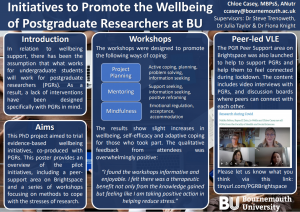

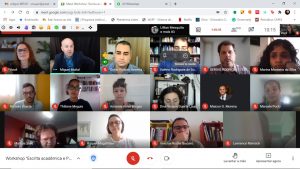
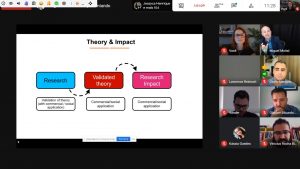
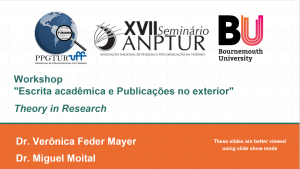
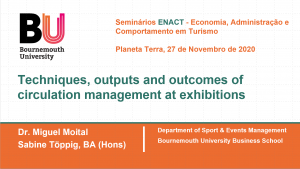
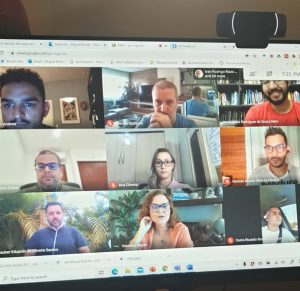

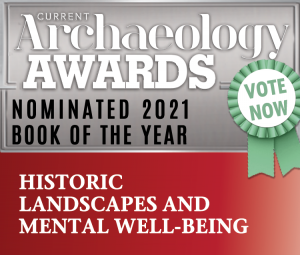
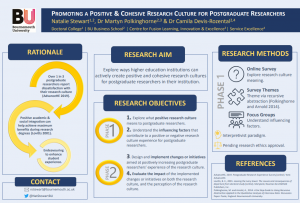
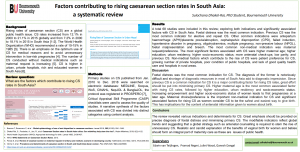
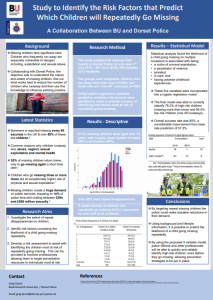
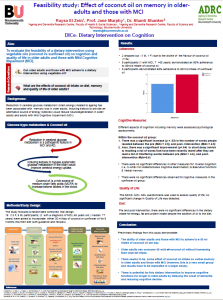
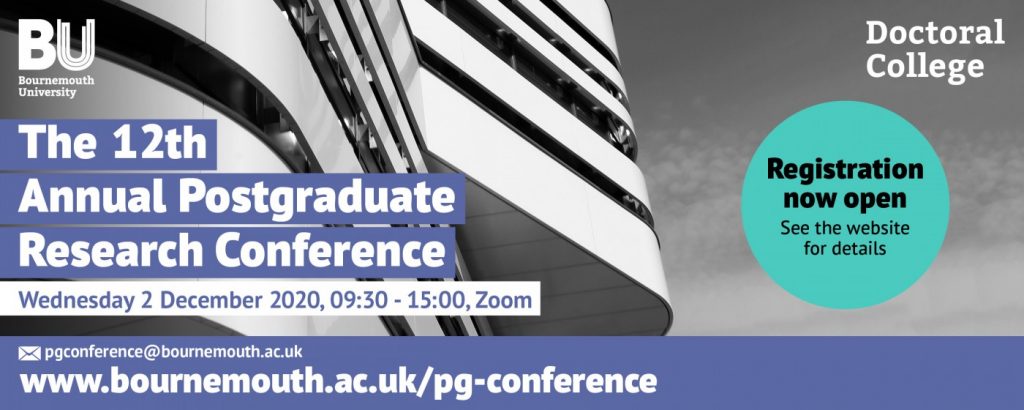
 The Science, Health, and Data Communications Research Group will be conducting a series of workshops to start off the new year, designed to help Bournemouth researchers form new networks and collaborative projects around educating and communicating research to the public.
The Science, Health, and Data Communications Research Group will be conducting a series of workshops to start off the new year, designed to help Bournemouth researchers form new networks and collaborative projects around educating and communicating research to the public. Wednesday 2nd December 10:00 – 12:00
Wednesday 2nd December 10:00 – 12:00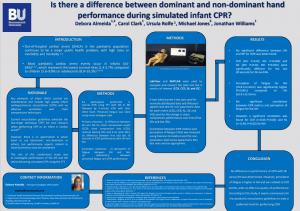
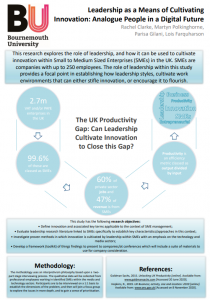

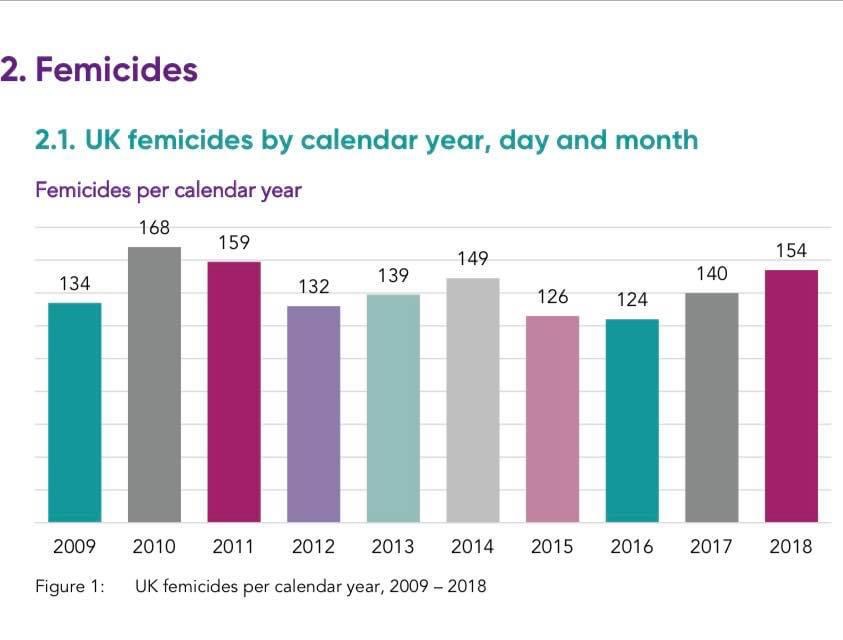


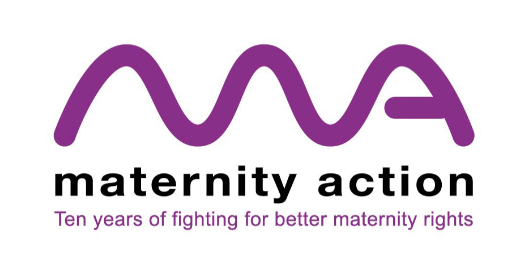 I attended a zoom meeting on the 25/11/20 hosted by Maternity Action (MA), which is the UK’s leading charity committed to ending inequality and improving the health and wellbeing of pregnant women, partners and young children – from conception through to the child’s early years. Part of their remit is the delivery of free, specialist advice through their telephone helplines, on employment rights, maternity pay and benefits. Maternity Action responds to 2,000 calls to their Maternity Rights Advice Line each year from women facing pregnancy discrimination at work or needing help understanding their employment rights. Shockingly, pregnant women or new mums experience high levels of discrimination and harassment, with circa 54,000 women losing their jobs each year as a direct result of pregnancy discrimination. One in 20 new mothers are made redundant during pregnancy, maternity leave or on their return to work.
I attended a zoom meeting on the 25/11/20 hosted by Maternity Action (MA), which is the UK’s leading charity committed to ending inequality and improving the health and wellbeing of pregnant women, partners and young children – from conception through to the child’s early years. Part of their remit is the delivery of free, specialist advice through their telephone helplines, on employment rights, maternity pay and benefits. Maternity Action responds to 2,000 calls to their Maternity Rights Advice Line each year from women facing pregnancy discrimination at work or needing help understanding their employment rights. Shockingly, pregnant women or new mums experience high levels of discrimination and harassment, with circa 54,000 women losing their jobs each year as a direct result of pregnancy discrimination. One in 20 new mothers are made redundant during pregnancy, maternity leave or on their return to work.










 Nursing Research REF Impact in Nepal
Nursing Research REF Impact in Nepal Fourth INRC Symposium: From Clinical Applications to Neuro-Inspired Computation
Fourth INRC Symposium: From Clinical Applications to Neuro-Inspired Computation ESRC Festival of Social Science 2025 – Reflecting back and looking ahead to 2026
ESRC Festival of Social Science 2025 – Reflecting back and looking ahead to 2026 3C Event: Research Culture, Community & Cookies – Tuesday 13 January 10-11am
3C Event: Research Culture, Community & Cookies – Tuesday 13 January 10-11am Dr. Chloe Casey on Sky News
Dr. Chloe Casey on Sky News ECR Funding Open Call: Research Culture & Community Grant – Application Deadline Friday 12 December
ECR Funding Open Call: Research Culture & Community Grant – Application Deadline Friday 12 December MSCA Postdoctoral Fellowships 2025 Call
MSCA Postdoctoral Fellowships 2025 Call ERC Advanced Grant 2025 Webinar
ERC Advanced Grant 2025 Webinar Horizon Europe Work Programme 2025 Published
Horizon Europe Work Programme 2025 Published Update on UKRO services
Update on UKRO services European research project exploring use of ‘virtual twins’ to better manage metabolic associated fatty liver disease
European research project exploring use of ‘virtual twins’ to better manage metabolic associated fatty liver disease